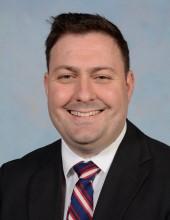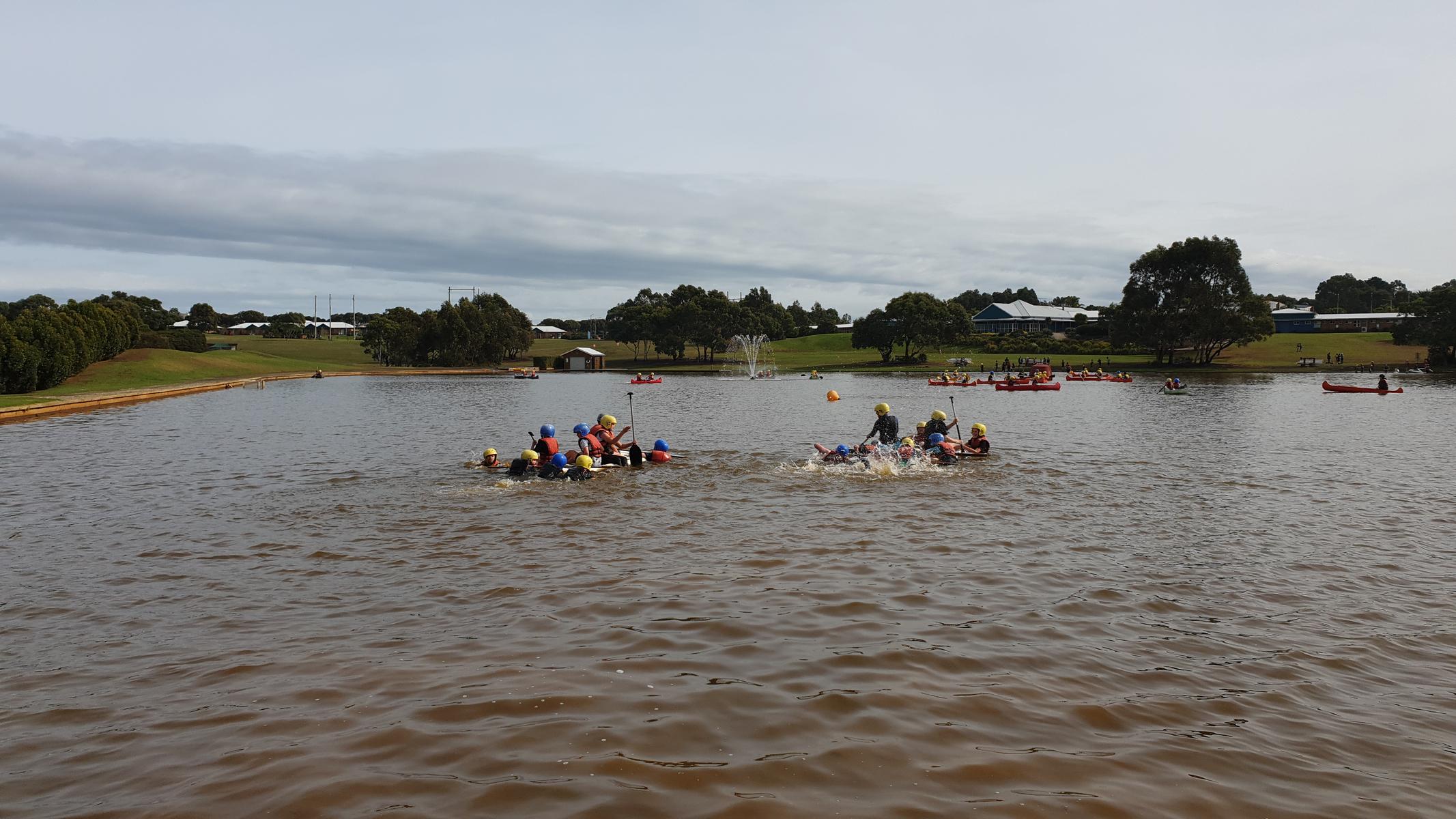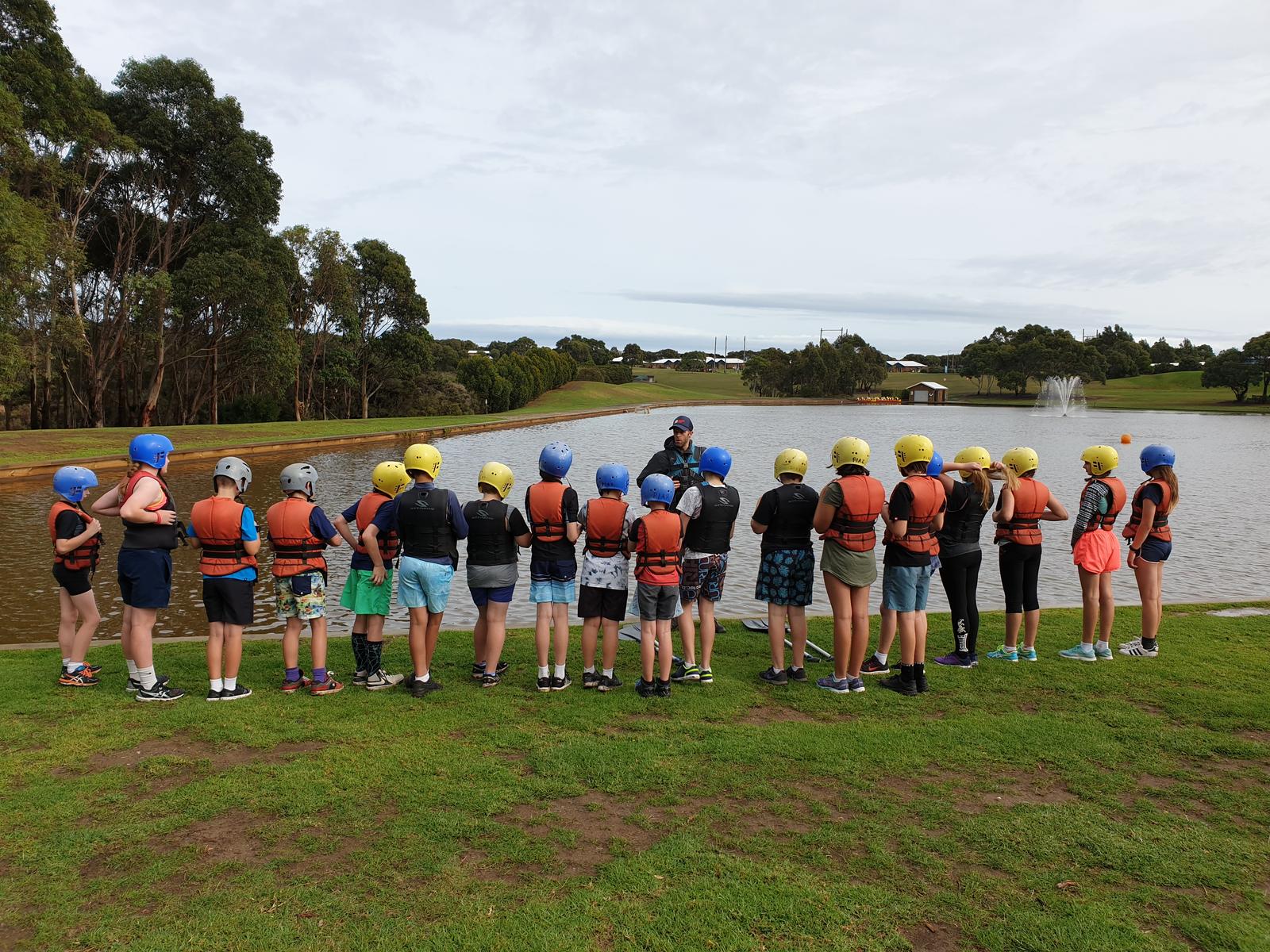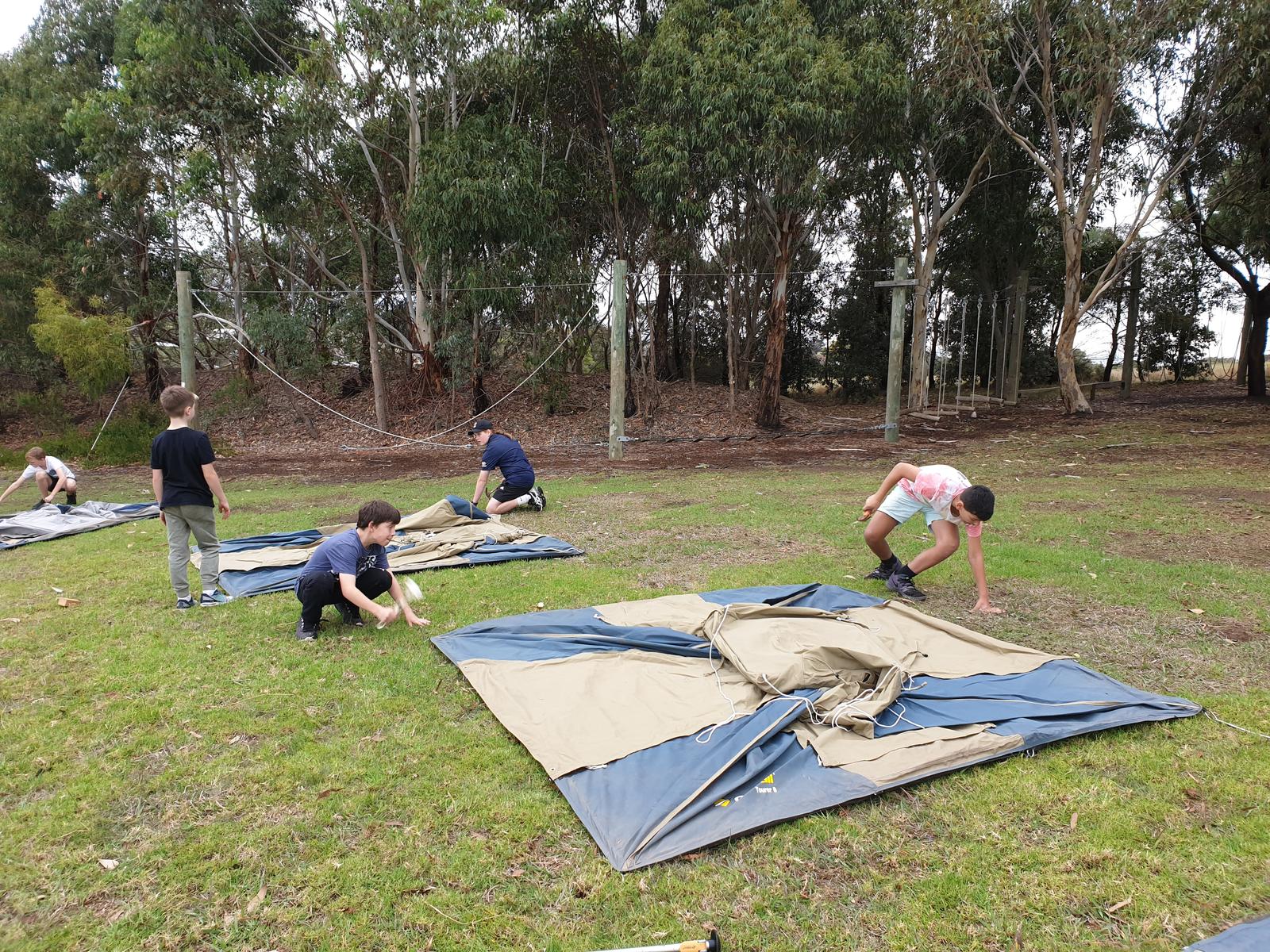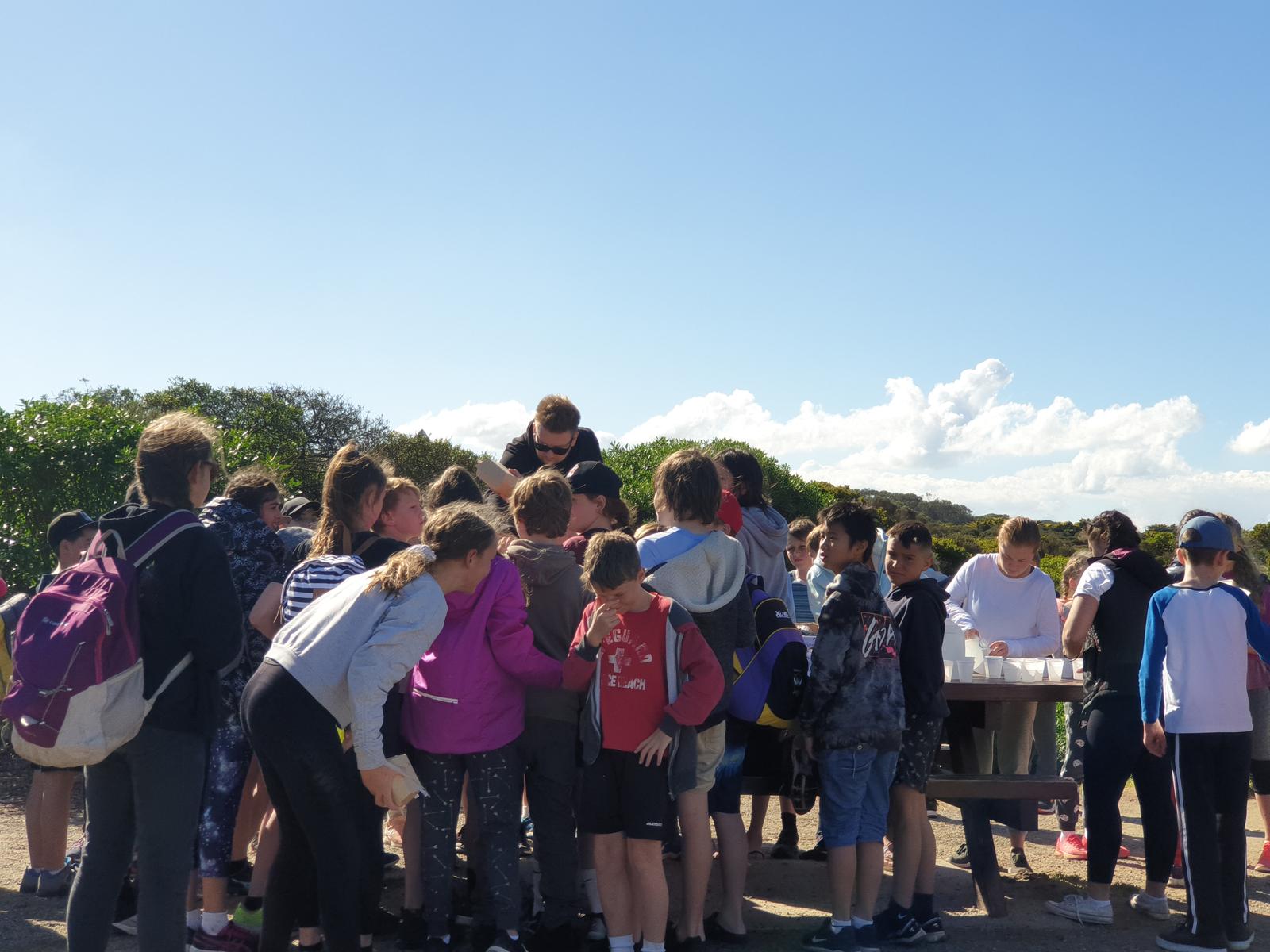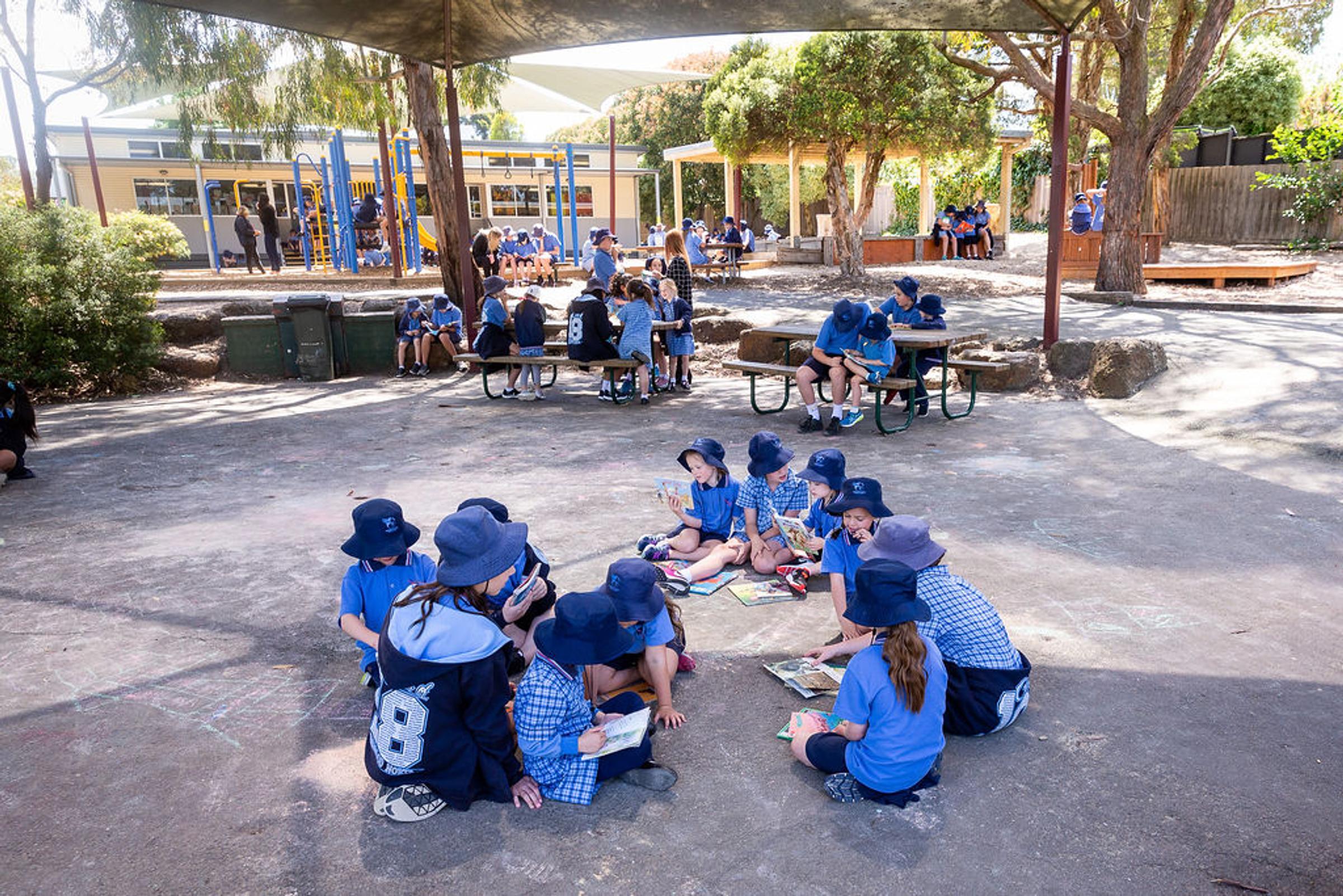
FROM THE PRINCIPAL
A Message from the Principal
Hello from Phillip Island
I am thrilled to be writing this having spent the last 2 days with our Year 6 students in Phillip Island. School camps are such a joyous moment and the extreme levels of energy that students expend over the short time is astounding to watch. I had a great time learning how to surf alongside the children today (I can count in decades the last time I attempted this!) and it was an extraordinary experience. There's no question that jumping into the surf and just trying to paddle can be hard enough if you don't do it regularly, let alone taking the leap to get up and standing. It filled me with such pride to see our students work through fear and anxiety, find calmness, and put the lessons into practice. I saw so many children stand on the board for the first time in their lives and their excitement was contagious, but I was just as impressed with those students who worked through to the end, wipeout after wipeout, and continued trying with a massive smile on their faces.
The camping program at RNPS is such an important component of students' social and character development. The opportunities they have to demonstrate care and empathy for their peers; to overcome fears; and to take a quiet moment to compose themselves, regulate their emotions and try something that may be embarrassing in front of their peers, is so valuable. Children grow together on school camp and I am delighted and humbled to have had the opportunity to join our Year 6 students for that this year. Well done everyone!
I would also like to extend a massive thank you to our teachers (Mr Allen, Ms Adkins, Ms Sedgwick and Jo Deakin) and volunteers for sacrificing for their own time, energy and sleep to provide students with these opportunities.
(Many more photos and videos to follow in a future issue.)
Home learning
Recently, the School Improvement Team reviewed the current home learning (homework) arrangements. It is a constant struggle within schools to identify the ideal arrangements for all families and the setup that will most benefit students - both in terms of their personal learning growth and in terms of preparing them personally for secondary school. I have seen firsthand from relatives how children can sometimes make even the most basic homework requests feel like an all out war, and we are cognisant of not wanting to create problems for families and eat into precious family time with requests that can seem unnecessary.
For this reason, we are developing a consistent home learning structure. It is not drastically different to may have been requested in the past but it is hoped that if families know in advance, then school and home can work together most effectively.
A basic overview of the arrangements is as follows:
Prep to Year 3 should:
* Read for at least 20 minutes at least 4 nights a week
* Practice maths knowledge, especially: counting (forwards and backwards); ordering numbers; number facts to 20 (pairs of numbers that add to 10 and 20); and single digit multiplication. One way to do this is using Mathletics - a target of 500 points for 1 week is reasonable - but other methods are just as legitimate. Games with family are especially encouraged.
* Review the spelling blend currently assigned to the student at school - all students should have access at home and school to their initial word lists that demonstrate the blend the student should be practising, contact your child's teacher if you're not sure where to look.
Year 4 to Year 6 should:
* Read for at least 20 minutes at least 4 nights a week
* Practice maths knowledge, especially: single and 2-digit multiplication; ordering and naming numbers correctly, including fractions and decimal fractions; identifying how to use maths to try and solve an every day problem; and practising scale and ratio. One way to do this is using Mathletics - a target of 1000 points for 1 week is reasonable - but other methods are just as legitimate. Authentic activities with family such as cooking and shopping are especially encouraged.
* Review the spelling blend currently assigned to the student at school - all students should have access at home and school to their initial word lists that demonstrate the blend the student should be practising, contact your child's teacher if you're not sure where to look.
Students in this age range may at times also be asked to:
* Collect information from home, such as by interviewing parents and grandparents, when relevant.
* Complete unfinished work or work that the student would like to spend more time perfecting/refining.
* Identify further home learning goals relevant to their personal progress that they could practise independently.
The key changes you will notice are:
* The extra fixed tasks in literacy and numeracy will not be assigned but instead completion of unfinished work will be requested in older years - this is more consistent with more of our local secondary schools currently.
* Students will not be punished for not completing homework but incentives to encourage students to engage in home learning may be used in the year level.
In the event that parents and students wish to have more home learning resources, either as a regular provision or due to an upcoming holiday/absence, please contact your child's teacher to request this.
Open Night
I am very excited about our upcoming Open Night on Wednesday May 22. As usual, families will have the opportunity to visit all areas of the school and participate in activities with their children. This year, we will also have some exciting visitors that will also be available for a Question and Answer session on some fascinating ideas about future careers and job skills that our children may need to develop.
The evening will run from 6.30pm to 8.30pm with the Q&A session starting at 8pm in the auditorium.
More information to follow through Compass next week!

